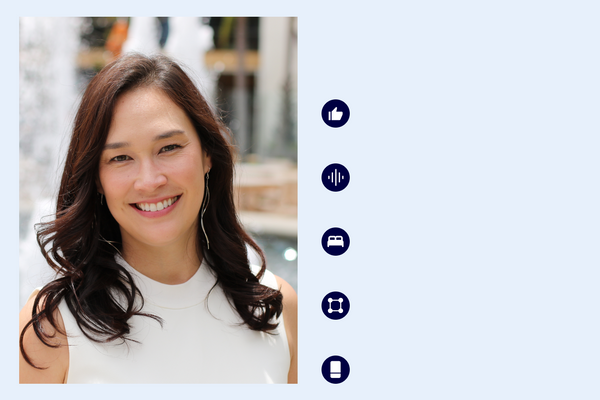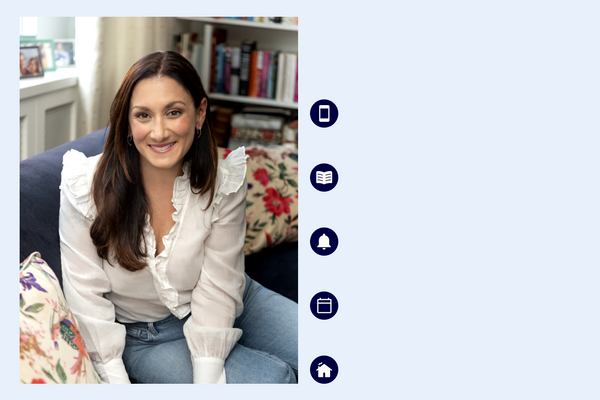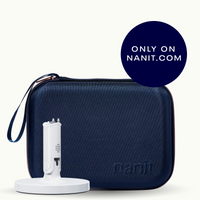We talk a lot about the burden of new motherhood. That, in many heteronormative relationships, even after the pregnancy and delivery, mothers are often still considered the “alpha parent.” Moms are often cited as the ones who can get the baby down quickly, or who know what to do during an epic meltdown - despite the fact that moms are often winging it, too.
But rarely do new fathers talk about the burden of new fatherhood. That, in following these behavioral patterns, they end up being the ones who don't quite have the touch, who might not be the first point of need, who feel useless at times. Coupled with lack of sleep and self-care and it can lead to a spiral of inadequacy that’s bolstered by social media and the hunch that other dads are doing it better.
In his new short film, Dad Bod, Ben Altarescu tackles these themes and so many more. He’s lifting the curtain on the new fatherhood experience and showing viewers that these feelings cut both ways. He also shows what happens when an anxious new dad embarks on a night alone with his baby, and the somewhat whacky turn of events that ensue.
At Nanit, we’re constantly observing the changing roles of dads, as evident by our active dad community. 40% of Nanit users are fathers, so we’re highly aware of the parenting shift that Altarescu documents so brilliantly. We sat down with the writer and director, husband to wife Eden and father to Francesca (aka Frankie), 3 and Miles, eight months, to chat about the grueling early days of parenting, the desire to feel needed and yes, the shame of the “dad bod.”
Tell us about "Dad Bod". What was that journey like for you and how did it all start?
We were living in Kingston, N.Y. at the time. It was after the thick of the pandemic but before we moved back to the city. My wife Eden had gone out for the night, to a friend's house down the street. I was putting Frankie down by myself for the first time. She was probably five months old. Eden had been breastfeeding and I had been doing bottles in the middle of the night, but I was like, okay, I got this. You're going down the street. We have to get you out of the house to have a drink with a friend.
I put Francesca down and felt very proud of myself. Then she woke up screaming her head off. I think she was starting to teeth a bit. It was like she was shot out of a cannon. She was inconsolable. I remember the emotional toll of being so overwhelmed and not feeling like I could do anything about it. I sang a million songs. I was rocking her, I was walking her around. I took her out of the room, and brought her to new environments. Eventually we got to the place where I could put her down again and I crashed on the couch. I couldn’t believe what just happened - that feeling of helplessness. Everything that came with it really stuck with me.
What was going through your mind?
A lot of things. But I was feeling, as a new dad, these power dynamics, and that despite my relationship and my role and all the things I do on a daily basis, it was a flagship moment. So I started writing something that was influenced by that. It took me a while to figure out the structure of it, but that was the impetus for the whole thing.
If you could transport yourself back to that time as a new dad, how did new fatherhood make you feel?
I remember feeling like, OK here are the things that I can do. I can keep Eden's water bottle full. I can be there for emotional support. I can make healthy food. Prior to that, I cooked a little bit, but since we became parents, I've been cooking for three-and-a-half years. But I wanted to do more, but it’s something we’re still figuring out. Developmentally, Frankie is very attached to Eden right now. So it was, how can I be around and be helpful, but also not feel like I’m useless or just waiting to be asked to do something? It was an ego blow masked by fulfillment, happiness, pride and all of these incredible feelings around starting a family. It was amazing but combined with this feeling of waiting in the wings, waiting to be asked what to do.
What was Eden’s reaction to your feelings?
I remember saying to her, as we struggled through these moments, that you clearly have a much clearer sense of what we should and shouldn't be doing. I need you to tell me what to do. And she was like, I have no clue what I'm doing, just like you. We need to figure this out together. This is no more instinctual for me than it is for you, despite the fact that I can breastfeed, and there are attachments that come along with that, but I don't have the answers. That was eye opening.
About 40 percent of Nanit users are fathers. We have a very active community of dads. Yet I wonder - in this moment of the new fatherhood conversation, what does it get right and what does it get wrong? What are we missing from it?
I think being a provider and caregiver can be so many things. It’s about learning to confidently step up, even when you get knocked down. The baby's going to cry, or your toddler is going to reject you and call for the other caregiver, but it’s about stepping up. It’s not personal. So it’s resilience and understanding that my job here is to be a provider and a mentor, not a friend, which creates a more equal home where both parents can contribute and take breaks from contributing.
Even in those jealous moments, when I thought, I wish I could do what she could do, or solve it, she also wished she could get a break from having to constantly breastfeed or be the parent being asked for. So it’s about stepping up and saying, Cool - this is my role at this moment. If that means it's a little bit harder for me, then that’s the lesson. It’s not a reflection of me doing a good job or a bad job. It’s just part of the experience to embrace that as well.
The film is called "Dad Bod", and there’s a theme of shaming or the feeling of inadequacy that comes from maybe seeing other dads on social media. Can you speak to that?
The Instagram rabbit hole is definitely a thing that I've experienced - and the algorithms. You start to buy diapers, and then suddenly you’re being fed cooking recipes, and parenting advice.
I think there's so many projections out there of what perfect parenting looks like or perfect fatherhood, or parenting hacks and tips. Some of it is good and comes from a good place, but being on the passive receiving end of this professional advice from people projecting images of what it looks like to be a good dad - it just weighs on you.
I’ve definitely fallen into the trap of watching these things and feeling badly about myself. Especially when I wasn’t eating well or sleeping well or taking time for myself, and then I’d see some perfect dad with this fake lifestyle and I’m comparing myself in these low moments and it takes an emotional toll. I don’t know what it means, but it’s definitely a rabbit hole that I’ve fallen into and then I wake up and think I need to delete Instagram off my phone! There’s so much advice out there, so it can become overwhelming in the face of actually doing the thing.








































